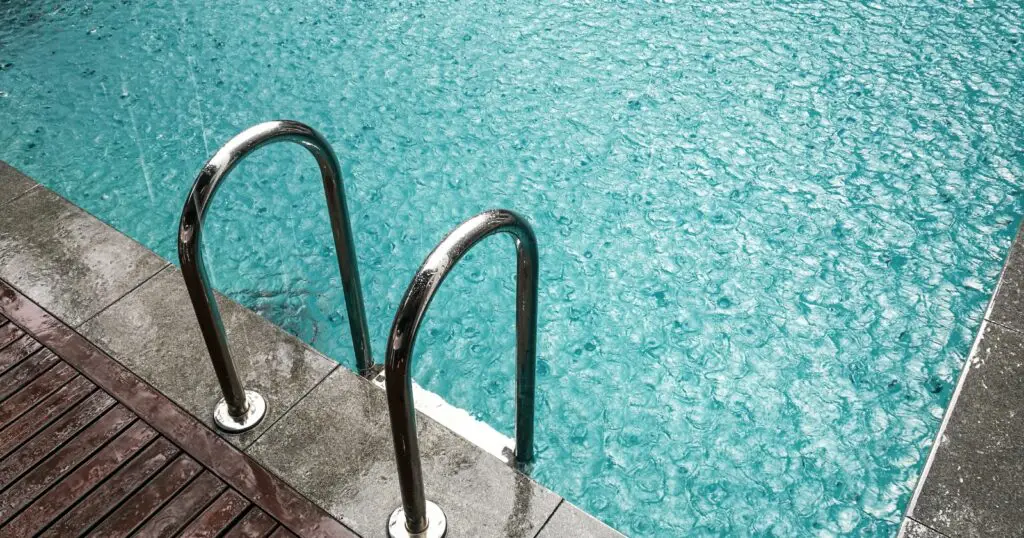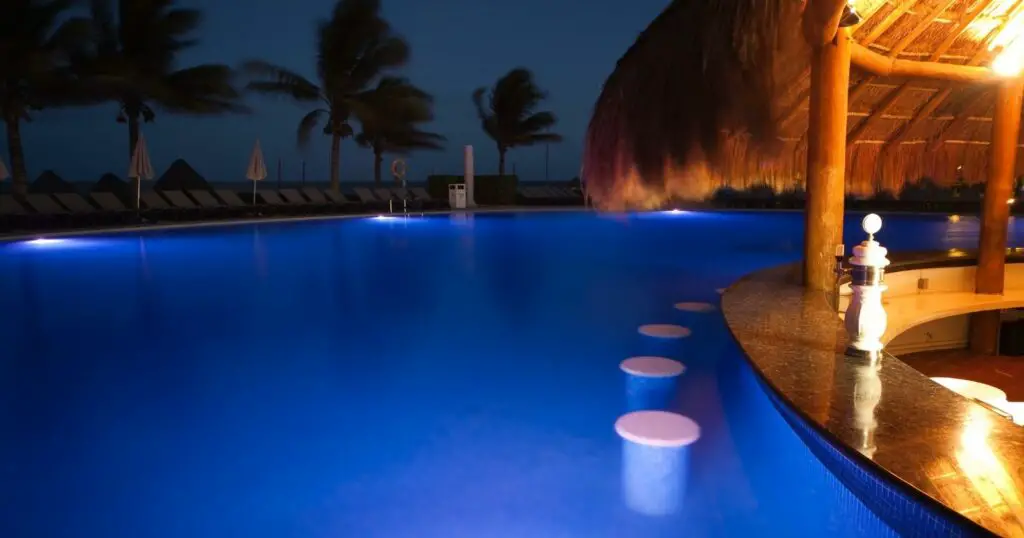Public pools usually close between 6 PM and 10 PM across the US. However, their is no regulation regarding the closing time, so some pools can also stay open till very late in the night.
A pool’s specific closing and opening dates can depend on a few factors, such as the local climate and weather patterns, the availability of staff and maintenance personnel, and any local regulations or guidelines that may apply.
There is no ‘standard time’ to close the pools, so it may seem confusing to be sure of its opening hours. If you are planning a visit to any pool, the thought of its working hours might be abstract.
In this article, I will give you a few pointers regarding public pool timings that will be helpful for you.
What Time Do Pools Close?

Pools in the US close at different times based on location and type. Public pools may have set hours posted online or at the pool. Generally, public pools may close between 6 p.m. to 10 p.m., depending on the season and local regulations.
Private pools, such as those in residential areas or at hotels, may have their own closing times, which vary widely.
Additionally, some pools may be open 24 hours a day, particularly in hotels or resorts. It is always best to check with the pool you plan to visit to determine its closing time.
If we are talking about pools closing for a season, things are a bit more clearer.
In areas with cooler temperatures and more variable weather patterns, outdoor pools may close as early as Labor Day, the first Monday in September in the United States. They reopen around Memorial Day, the last Monday in May in the United States.
In warmer climates or areas with milder winters, outdoor pools may remain open year-round or only close briefly during the winter months. The chemicals used might not sustain the winter if the pool is shut too early.
Reopening may be delayed due to unclean water. Similarly, if the pool is shut down at all, maintenance becomes more accessible and affordable.
Why Are Pools Closed During Rain?

Closing the pool during rain is a precautionary measure taken to ensure the safety of swimmers, protect water quality, and maintain the pool’s infrastructure.
Pools are typically closed during rain for a few different reasons.
1. Safety
When it’s raining, the pool deck and surrounding areas can become slippery, increasing the risk of slips, falls, and other accidents. Additionally, during thunderstorms, there is a risk of lightning strikes, which can be deadly. For these reasons, it’s safer to close the pool during rain.
2. Water quality
Rainwater can carry pollutants, dirt, and debris into the pool, affecting water quality and balance. This can result in cloudy or dirty water, which can be unappealing and potentially harmful to swimmers.
3. Filtration and Maintenance
Heavy rainfall can overwhelm the pool’s filtration system, making it difficult to maintain the proper chemical balance in the water. This can cause issues like algae growth and pH imbalances, which can be difficult and time-consuming. Closing the pool during rain can help prevent these problems from occurring.
Do Pools Lose Water In Winter?
Yes, pools can lose water in winter due to several factors. It’s essential to monitor the water level in the pool throughout the winter and address any issues that may be causing water loss.
1. Evaporation
Even in cooler temperatures, water can still evaporate from a pool. This is especially true in dry or windy conditions, which can increase evaporation rates. If the pool is not covered, evaporation can result in a loss of water over time.
2. Leakage
Cold temperatures can cause the pool’s plumbing and other components to contract, resulting in leaks. Suppose the pool is losing water more quickly than expected from evaporation alone. In that case, there may be a leak somewhere in the system that needs to be repaired.
3. Backwashing
Suppose the pool is being maintained during the winter. In that case, backwashing the filtration system can result in significant water loss.
4. Splashing
If people use the pool during the winter, splashing and other activities can result in water loss.
This can help prevent damage to the pool’s infrastructure and ensure that the pool is ready for use when warmer weather returns. A pool cover can also help reduce evaporation and stabilize the pool’s water level.
Do Hotel Pools close Early?
Hotel pools’ opening and closing times can vary depending on the hotel’s policies, location, and other factors. Some hotels may keep their pools open 24/7, while others may have set hours for pool use. In general, however, many hotels close their pools earlier in the evening, often around 9 or 10 p.m.
There are a few reasons why hotels may complete their pools earlier in the evening.
First, it can help ensure that guests are not disrupting others with noise or other activities late at night.
Second, it allows hotel staff to clean and maintain the pool during off-hours, which can help ensure that it is in good condition for guests to use during the day.
Finally, closing the pool earlier in the evening can help reduce the hotel’s liability risks by minimizing the chances of accidents or injuries occurring after dark.
Suppose you are planning to use a hotel pool during your stay. In that case, you must check with the hotel beforehand to find out their policies on pool hours and any other rules or regulations that may apply.
Plan your activities accordingly and ensure a safe and enjoyable experience.
Here are some of my favorite hotels with their pool closing time.
| Hotel Name | City | State | Pool closing Time |
| The Westin Seattle | Seattle | WA | 10:00 p.m |
| Hilton Orlando Bonnet Creek | Orlando | FL | 11:00 p.m |
| Sheraton Grand Chicago | Chicago | IL | 9:00 p.m |
| Four Seasons Resort Maui at Wailea | Wailea | HI | 8:00 p.m |
| The Ritz-Carlton Bacara, Santa Barbara | Santa Barabara | CA | 7:00 p.m |
| Hilton Garden Inn | New York | NY | 11:00 p.m |
| Hyatt Regency | New Orleans | Louisiana | 10:00 p.m |
| The Ritz-Carlton | San Francisco | CA | 9:00 p.m |
| Fairmont Miramar Hotel & Bungalows | Santa Monica | CA | 8:00 p.m |
| Four Seasons Hotel | Miami | SF | 7:00 p.m |
Note: The closing times mentioned are subject to change and may vary accordingly.
Can You Go To The Pool At Night?
Whether or not you can go to a pool at night depends on a few factors, such as the location and policies of the pool. Some public and private pools may have specific hours of operation and may close at a particular time each night.
However, some pools may allow swimming and other activities to continue into the evening and even late at night. If you plan to go to a pool at night, you must know any applicable rules and regulations.

For example, certain pools may require you to wear appropriate swimwear or limit the use of specific equipment or accessories. Additionally, swimming in a pool at night can present unique safety concerns, such as limited visibility, colder water temperatures, and increased risks of slips, falls, and other accidents.
If you are still determining whether or not you can go to a pool at night, contact the pool’s management or staff ahead of time. They can provide information about the pool’s hours of operation, any applicable rules or regulations, and any safety concerns you should be aware of.
Exceptions to Typical Pool Closing Times
There are some exceptions to typical pool closing times. These exceptions are not universal and can vary depending on the location and policies of the pool in question.
1. Private pools
Private pools, such as those in residential backyards, may not have any set hours of operation and can be used at any time of day or night as long as the owner is okay with it.
2. Hotel pools
Some hotels may keep their pools open later than usual, primarily if they are located in areas with a lot of nightlife or if the pool is a popular attraction for guests.
3. Community pools
Some community pools may stay open later than usual during the summer, especially if they host special events or activities.
4. Indoor pools
Indoor pools may have longer hours of operation than outdoor pools, as they are not subject to weather-related concerns.
5. Pools for special occasions
Occasionally, pools may be open later than usual for special events or occasions, such as pool parties or private rentals.
Final Remarks
In this article, I mentioned all the reasons and exceptions related to the closing schedules of pools. I also mentioned how they vary under different situations and the potential safety concerns.
Let us summarize the article.
A pool’s closing time varies depending on the location, climate, and policies of the pool owner. Most outdoor pools in temperate climates shut during fall and reopen in the spring, while the indoor pools may remain open throughout the year.

My name is Jeyn Dashner and I am the founder of WanderFever. I have worked as a travel journalist for many years, and exploring new places is my greatest pleasure in life.
